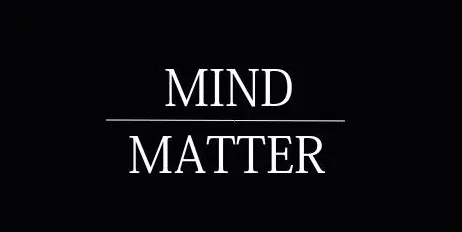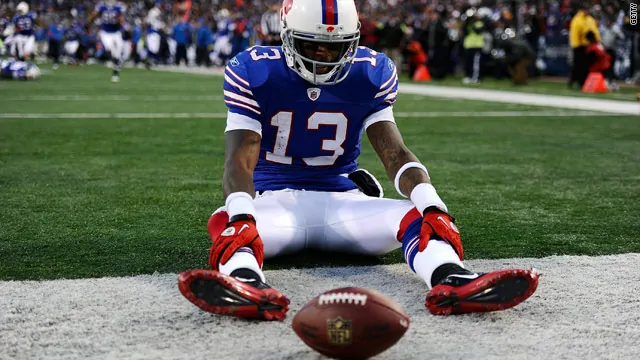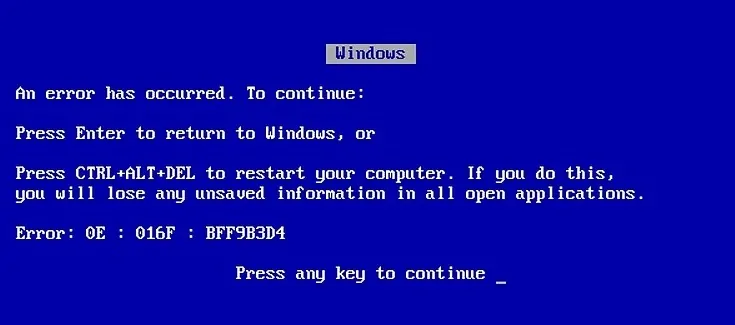I have been careless in some of my decision-making. Careless is being generous. My decisions were naïve and arrogant.
When I was learning how to start investing with little money, I bought SiriusXM stock on news of the two companies merging (previously, Sirius Satellite Radio and XM Satellite Radio) and believed the touted benefits resulting from the deal would easily make the investment a no-brainer.
Well, it did in the sense I didn’t think before acting.
The stock proceeded to crash to practically nothing. As a result, I felt physical pain watching the stock make its descent and I blamed myself constantly for the stupidity.
At this point, I made the even dumber decision to gamble by buying more. Certainly the wrong way to start my path to building wealth.
Lucky for me however, a series of fortunate events transpired and the stock recovered. I took advantage of the opportunity and sold virtually at no loss. But these results aren’t typical.
Of all the decisions you make, mistakes involving money can be some of the hardest felt. Quite often, these involve some of the most important decisions in life.
In my case, the decisions stand to this day as some of my worst investing mistakes and guide my investing ethos (i.e., investing in index funds).
And I’ve made more than a few. If my goal is to reach financial independence, I need to minimize my mistakes more so than maximizing my gains.
In this post, I examine the decision-making process and how best to react when the stock market is crashing and stocks go down.
Further, I discuss how making the right decision isn’t always easy.
Sometimes, it’s nice to wish other people could be the smart ones and I could leave the decision-making to them.
However, life is about choices and you are the one best suited to make good decisions in times of panic.
What Was I Thinking When the Stock Went Down? (Spoiler: I Wasn’t)
Looking back, I don’t remember hitting the key strokes to initiate the second trade allowing me to throw good money after bad. What I do remember, however, is why I made the decision to buy another time.
I wanted the red in my brokerage account to go away and be replaced by the sea of green I originally imagined the investment would deliver.
My mind’s thoughts blurred knowing I had lost almost $1,500 (my entire account balance at the time), not to mention adding insult to injury by having to pay for my trade.
Something which I wouldn’t have had to do today with the bevy of free trading apps available with apps like Robinhood. I just wanted to make the hemorrhaging stop.
I was so mad at myself I couldn’t think. What I ended up doing was committing a crime of passion focused on my self-preservation.
Maybe I’m exaggerating, but I was certainly desperate and felt so bad that I couldn’t think straight. I would have been better served by shorting the stock, but I didn’t have any idea how at the time.
When the stock went down, my primal self screamed in pain. The same feeling extends to any significant loss, whether it’s the stock market crashing, a relationship ending or losing a loved one.
It turns out, there’s a biological reason for that. And it all happens in the brain thanks to how we evolved.
Related: Best Financial Apps for Teens
There is a Thumb on the Mind’s Scale
The human mind does not measure gains and losses in the same way.
For me, I saw immense upside from the decision to buy the stock compared to the almost impossible (in my mind) downside of the investment. We can see how that turned out.
Without getting too technical, the human mind has a deep-rooted imbalance between evaluating gains and losses that has evolved over time.
Our ancestors were hunter-gatherers who saw self-preservation as their imperative because some poor decision-making could lead to their demise.
Those who chose to focus on survival more than maximizing opportunities lived to see another day and increase the chance of passing along their genes.
I was betraying my genetic roots by attempting to maximize my opportunities instead of limiting my losses.
Much like a wide-receiver who sees his path to the end zone but takes his eyes off the ball and drops the pass, I got ahead of myself.
I thought about what I would do with the gains instead of whether the investment was smart.
The Bug is in the Hardware, Stupid
If you want to skip the biology lesson, skip ahead to “And Now Back to Your Regularly Scheduled Programming (TL; DR)”. Though I warn you, the following information about the human brain will help you to understand more about why you react the way you do when stocks go down or you experience losses in a stock market crash.
For those who took college biology, this part may sound familiar to you because it will be a deeper dive into the brain’s processing function.
The brain contains lobes, cortexes, and other important features. The main part for handling information received from external stimuli is the thalamus.
It serves as a hub for accepting, processing, and relaying sensory signals to the rest of the brain. This section activates when you’re in that moment of distress from experiencing a loss.
Look at the thalamus as a doctor who diagnoses a patient’s sickness. The thalamus identifies different sensory information and directs where it goes.
Messages travel to two important destinations: your amygdala and your prefrontal cortex.
Think of these as equal and opposite- two opposing forces fighting for control. The amygdala has the burden of handling emotions like anxiety, fear, arousal and aggression. The biggies. The deadly sins, if you will.
Basically, its job is to act as an early warning system designed to keep you alive.
The amygdala is where the human mind makes the decision to prioritize survival over maximizing opportunities.
At the extreme, this is where your mind confronts the decision of fight or flight. And it does so in 12 milliseconds.
That’s pretty quick for a computer that’s evolved over the entirety of human existence. Not as great an iPhone 16 or a Google Pixel 9, but more than adequate considering it’s not had the benefit of Moore’s Law.
Evolution takes millions of years, whereas a twice as fast iPhone will be out this time in 2026.
If the amygdala is responsible for the deadly sins, the prefrontal cortex is the rationed thinker who favors better decision-making over gut response.
The prefrontal cortex is the brain’s planning department, plain and simple. It deliberates decision-making and moderates social behavior. It’s the friend who lets you know when you get weird around an ex.
Think of the prefrontal cortex as an air traffic controller directing your thoughts and actions. It allows you to pause and reason through your decisions.
While this part of the brain sounds great, unfortunately, it comes equipped with a competitive disadvantage.
The thalamus sends information to the amygdala and the prefrontal cortex simultaneously, but your amygdala will always win this sprint.
It takes 40 milliseconds for the prefrontal cortex to get a message as compared to the amygdala’s 12. Great for survival, less so for level-headed thinking.
Blue Screen of Death
The math here isn’t hard to see. That’s a 28 millisecond differential where emotions rule the roost. Your rational decision-making is clouded out by a chemical created in the brain called cortisol.
This acts as a clotting agent during moments of duress and sends a very clear message to the brain.
“Raise the bridge and lower the gate! We’re under siege!” Understandably, this can create some stress on the rest of the body.
There isn’t much control you have at this point given the unflinching speed at which the signals pulse through your body saying to be on high alert. This reaction is simple cause and effect programmed into our DNA.
Put succinctly, you’re emotional before you’re rational. And unless you’re incapable of feeling emotion, tough noogies.
Now that you know a bit more about how the brain processes emotions, you should use this to prepare yourself for stressful situations that lay ahead like a stock market crash.
Learn how not to make decisions out of fear or anxiety but give yourself that 28 milliseconds to process what’s happening. Don’t act hastily when some measured reasoning might save you big.
And Now Back to Your Regularly Scheduled Programming (TL; DR)
If you decided to skip ahead, welcome back! If you chose to read your daily recommended biology lesson, kudos to you.
When I faced the decision point of making the second investment, I did not see survival as my motivation necessarily, because I knew I would be fine in the end without the $1,500.
However, my amygdala (the part of the brain which reacts to emotions) stole the show and called an audible before my prefrontal cortex (steady, level-headed thought center) could act.
If my prefrontal cortex had mapped out my actions and I was a logical decision maker, I would not have made the follow-on investment.
Hindsight being what it is, my bet paid off, but these decisions absolutely were not right.
I wasn’t operating with my prefrontal cortex in charge. My amygdala was calling the shots and I should have been more reasoned and mindful of the risks involved. But biologically, the amygdala triggers before the prefrontal cortex and quite often our initial reaction is based on emotions.
How to Put Mind Over Matter When Stocks Go Down
What takeaways do I want my biology lesson to deliver?
By understanding how the brain processes a loss (or any extreme emotion), you can see humans are not purely rational and often act on emotional impulse during emotionally-intense moments.
Also, you can see there is a battle humans face: decisions vs. choices.
Decisions are the action made based on the availability of choices. When possible, humans always want to avoid a loss and stop the bleeding if one occurs.
This is especially true when humans make decisions under risk.
In fact, due to evolution, the fear of losses has propagated through time and the prospect of losses became a more powerful motivator than the promise of gains, all things being equal.
Said differently, the discomfort suffered from a loss weighs greater on the mind than the pleasure associated with gaining the same amount.
In all likelihood, we would not be here were these motivations flipped.
As you can see, if humans received signals in the amygdala and prefrontal cortex simultaneously our decisions would differ.
Were rational thought to hold equal prominence as emotions in our mind, because decisions have consequences, I would not have made the poor investing decisions.
Unquestionably, I would have avoided acting on emotional impulse and doubling down on my series of bad decisions. I needed a better rational decision-making model.
What it all boils down to is our inability to control the inputs which come into our brain. The only element we truly have control over is the outcome.
When you’re in that moment of pain, loss, anguish, or something unbearable, remember that built-in disadvantage the prefrontal cortex suffers compared to the amygdala.
Your initial response will be motivated by emotions, not rationed thinking.
Try to hold on for just a moment longer before acting. Your prefrontal cortex, your brother in arms, would rather lose a lobe before he let you come to harm. Just give him a chance.
Related: 23 Income-Generating Assets to Build Passive Income











